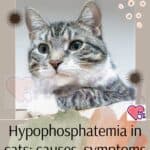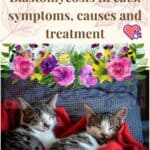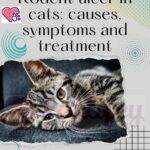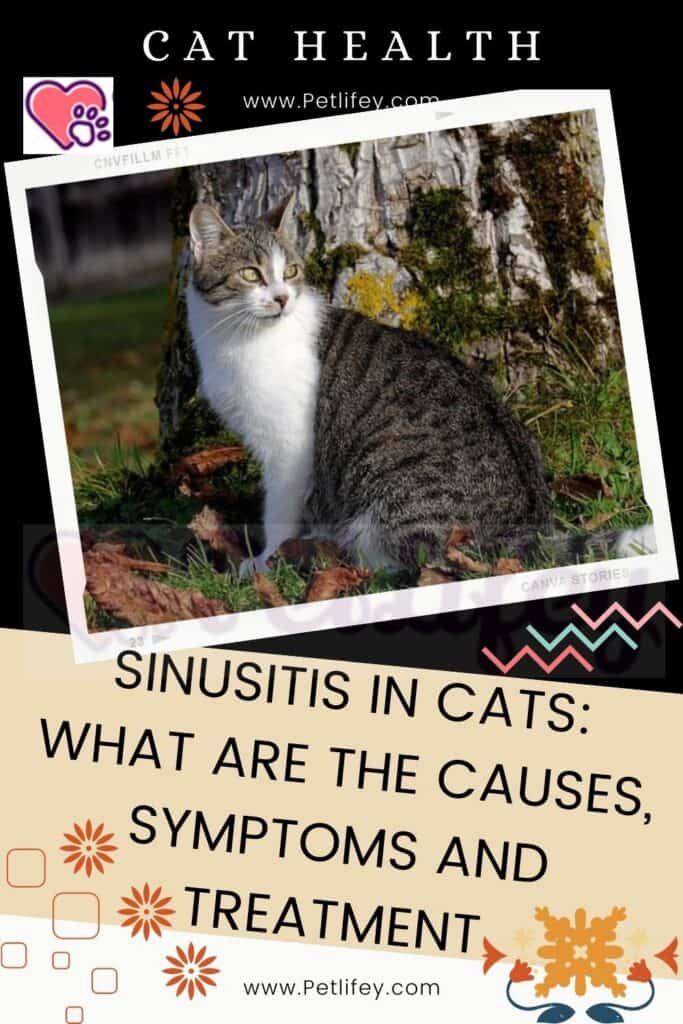
If a cat has a runny nose, we immediately think it is a cold. But what if it is sinusitis in cats? Here’s what to know.
There are many pathologies that can affect your cat, and especially in the coldest periods of the year its respiratory tract is subject to numerous “ailments”.
The first thought we have when we notice that a cat has a runny nose and cannot breathe well is about the cold, certainly the most widespread and common.
What if it’s not a cold but something else? In fact, its symptoms can be linked to other pathologies, some more or less serious, and one of these is sinusitis in cats.
Let’s find out specifically what it is, what its causes and symptoms are and how to intervene quickly to help your cat heal.
Sinusitis: what it is
As we said previously, sinusitis is usually confused with a cold , because both have symptoms that are quite similar to each other.
But what is sinusitis? It is an inflammation that affects the Para nasal sinuses : these are real cavities of the bones of the skull, located between the roots of the nose and the eyebrows, which communicate with the nose through small ducts that guarantee the passage into the nose. of the mucus generated by the mucous membrane that covers the sinuses.
At the base of this pathology there can be several causes : a viral or bacterial infection of the upper airways (nasal and Para nasal cavities, pharynx and larynx) or of the mouth, and in some rare cases it is caused by fungi (especially in allergic subjects or with a weak immune system).
Sinusitis can be:
- acute if it lasts more than three weeks;
- subacute if it lasts a maximum of three months;
- chronic when it lasts longer.
Anyone suffering from this pathology will find :
- The interruption of the passage of mucus from the paranasal sinuses to the throat;
- The mucosa, which covers the sinuses, will swell, trapping the mucus : which will become more and more dense, yellow and purulent, the ideal place for the reproduction of bacteria and fungi.
Face pain, reduced smell and taste, nasal congestion are just some of its symptoms.
Sinusitis in cats: causes and symptoms
Sinusitis in cats, an annoying and widespread disease, can be caused by multiple factors, and its symptoms can become very painful.
Generally it is caused by bacteria, viruses or fungi that lurk in the sinuses, but in cats it is mostly found due to the colonization of viruses.
In these situations, sinusitis is defined as rhino genic : there is a greater production of mucus and a narrowing or even an obstruction of the ducts of the Para nasal sinuses. This inevitably hinders the passage of mucus to the nasal cavity.
And in some severe cases, infection is added to the inflammation. Rhinogenic sinusitis can also be caused by alterations of the nasal structures (i.e. nasal defects), allergies and facial trauma.
Other causes can be tooth infections : in fact it can happen that an abscess of the dental root extends to the Para nasal sinuses, triggering sinusitis, which in this circumstance is defined as wave-like .
Generally, sinusitis in cats occurs only after a cold, i.e. acute rhinitis, or as a result of allergies, i.e. chronic rhinitis. This is why most often we hear talk of rhino-sinusitis in cats: an inflammation that involves the nose (rhinitis) and the Para nasal sinuses (sinusitis) at the same time.
But what are the symptoms found in a cat with sinusitis?
- nasal and oculo-nasal colus;
- yellowish, purulent mucus , which may also increase;
- frequent and continuous sneezing with constant itching in the nose;
- cough ;
- fever ;
- headache ;
- toothache and inflamed gums;
- swelling of the muzzle ;
- presence of blood in the mucus;
- halitosis and otitis, in the event that the sinusitis has turned into chronic;
- lung diseases in severe cases.
If these symptoms persist or recur in a more violent way after a presumed recovery, it is advisable to take the cat to the vet.
How to cure sinusitis in cats
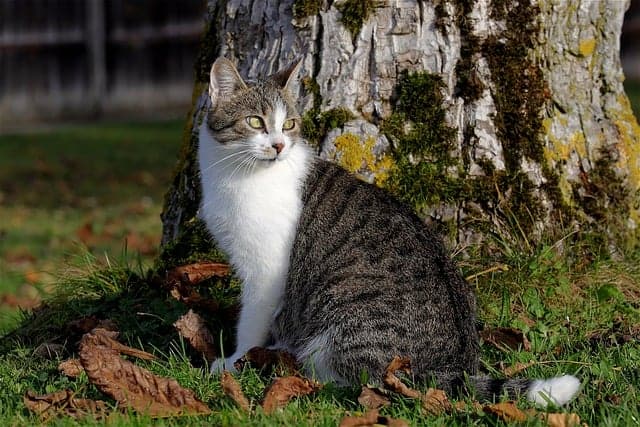
It goes without saying that sinusitis in cats should not be underestimated, as it could turn into chronic sinusitis.
Taking the cat to the vet when the first symptoms appear due to this pathology is essential to obtain a timely diagnosis, able to understand what is the triggering cause.
Only in this way will the vet be able to indicate the most suitable treatment for the situation. Generally the treatment is pharmacological, and only in the most serious cases, when the cat’s organism does not respond to drugs, will it be necessary to intervene surgically.
All the treatments indicated by the veterinarian will ensure the improvement of the sinus drainage and the end of the infection. They can be prescribed :
- Aanti-inflammatory and decongestants, administered in the form of nasal drops or aerosols;
- Antibiotics if the sinusitis is of bacterial origin;
- Antihistamines if caused by allergies;
- Antifungals if the infection was caused by fungi.
These are the various therapies that the vet will indicate to us according to the triggering cause of sinusitis in cats, but what can we do? These additional remedies can relieve symptoms and help your kitty heal sooner than only we can.
- We avoid taking it to crowded or dry places, and exposing it to cold (which worsens various pains), to heat (which increases inflammation) or to drafts ;
- Let the cat drink a lot of water or eat wet food, so as to promote hydration which will “dissolve” the mucus;
- We humidify the room where he rests or where he spends most of his time, so as to facilitate nasal drainage;
- We avoid the use of agents at home that contribute to the irritation of the mucous membrane of the respiratory tract (room sprays or cigarette smoke).
When we notice the first symptoms of sinusitis in cats it is highly recommended to carry out nasal washes with saline solution: in this way the mucus will be expelled easily, avoiding the colonization of viruses, bacteria or fungi and thus preventing sinusitis to our beloved cat, and also others pathologies.

